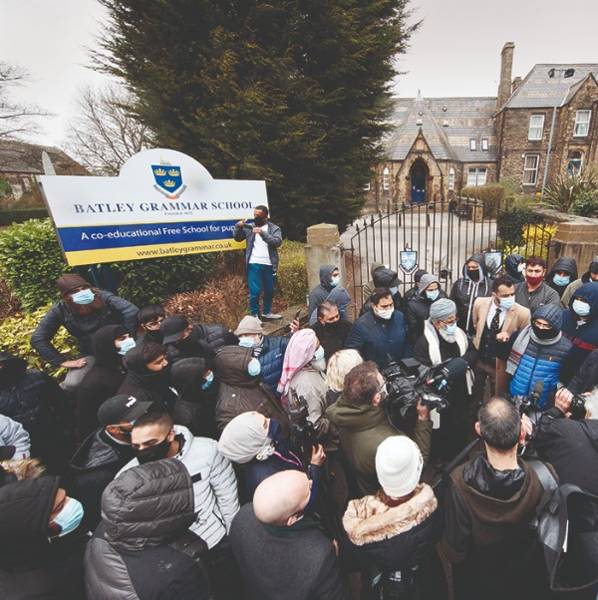
It doesn’t take a genius to see we’ve reached a tipping point in higher education. Universities in the UK are building bigger, hiking tuition, adding administrators, and expanding student bodies at a higher rate than ever before. Most universities have simply doubled down on a strategy of infinite expansion, rather than fundamentally rethinking their future. This masquerades as innovation, usually by invoking misleading comparisons to gargantuan companies like Apple or Amazon. But unsurprisingly, for universities to build, budget, and think like a corporate giant - especially given their shoestring budgets - is a recipe for disaster.
We’ve given the "bigger is better" approach enough of a chance. What we haven’t done, in any substantial way, is try the opposite: going smaller. Don’t get me wrong. I’m not talking about stop-gap austerity measures, like slashing faculty jobs and cutting student services. What we need is a major shift in how we think about the size, shape, role, and responsibility of the university. Let’s imagine for a minute what it would look like to have a university which occupied just a couple buildings, stripped away all but a few basic administrative costs, and offered tiny classes for little or no tuition. I want to call this the micro-university.
This might sound like wishful thinking, but it has a proven pedigree. In 1917, the American electrical engineer and philanthropist Lucien Lucius Nunn founded Deep Springs College in the high desert of California. The educational model Nunn devised has remained largely unchanged ever since. The two-year college admits thirteen students per year, with a more selective admission rate than Oxford, Cambridge, or any of America’s Ivy League colleges. Classes are small and demanding, with three chaired professors at the helm, one each in the humanities, social sciences, and natural sciences. Students at Deep Springs pay zero tuition. The college is able to keep it this way through Nunn’s endowment and a visionary model of self-sufficiency. Under the supervision of a manager, students work a cattle ranch, run a farm, make their own food, perform their own maintenance, and execute a large degree of self-governance, all while pursuing a rigorous liberal arts curriculum. Learning and labour reinforce one another.
The image of the scholar cowboy, herding cattle in the morning and reading Kierkegaard in the afternoon sounds distinctly American. However, the fundamental lessons of Deep Springs are surprisingly transferable to the UK. Imagine a host of small liberal arts colleges scattered through rural areas of this country, each centred around small, sustainable industries with minimal environmental impact, from sheep farming to bee-keeping to brewing and distilling. Students would live on site, in small communities formed of a few dozen peers, a handful of teachers, and knowledgeable tradespeople. They would split their time between their more esoteric studies and the business at hand, from skilled labour to basic upkeep.
These micro-universities might develop as offshoots of traditional universities, which could seize on their potential to test out new curricula and pedagogies, targeted at small groups of exceptionally motivated, industrious students. Students could spend a term in a micro-university - perhaps instead of studying abroad - or their entire undergraduate career. Alternatively, these universities might operate independently, with no parent organisation. The micro-university would not appeal to all prospective students, or perhaps even the majority. It would take path-breaking students, dissatisfied with the size, atmosphere, or price of existing universities. But the risk for these students would be low, since they would pay little or no tuition and would learn practical skills along the way.
The real impact of these micro-universities would stretch beyond the number of students they educated. They would provide a tangible alternative to the prevailing dogmas of higher education, encouraging traditional universities to adopt some, if not all, of their practices. First, the micro-university would challenge bureaucratisation, providing a model of transparency, accountability, and community toward which large universities could strive. Second, it would emphasise environmental responsibility in an era when universities are casually creating sprawling carbon footprints and investing irresponsibly in fossil fuels and other primary agents of climate change.
The idea of the micro-university has the potential to initiate a fresh debate about affordability. There is every reason to believe that if the UK continues down the current path of increased tuition fees, we will eventually end up with the same crippling problems faced in the USA, where student debt totals over a trillion dollars. We should not accept ever-increasing tuition fees in this country as if there is no alternative.
Addressing affordability also requires a frank discussion about work. The stereotype of the lazy student is stupid. In order to pay for university, many UK undergraduates work long hours at minimum wage jobs which compete with their studies. Instead of turning a blind eye to this trend, or regarding work as an unfortunate impediment, universities need to develop programs that provide all students with opportunities to do practical tasks that support themselves and the institution, and are fairly rewarded. Rather than vague promises of transferable skills, we should emphasise tangible work experience, integrated and valued within a holistic university experience.
Introducing micro-universities wouldn't solve every aspect of the crisis facing higher education. But it’s time to stop adopting an endless stream of top-down, homogeneous solutions. We need to start looking for ideas that start small, and value true experimentation, in which the results aren’t always predictable. As I tell my students, it is better to fail being creative, than to scrape by thinking inside the box.
Dr. Aaron Rosen is the Lecturer in Sacred Traditions and the Arts at King’s College London. He earned his PhD from the University of Cambridge, and taught previously at Columbia, Yale, and Oxford Universities.

